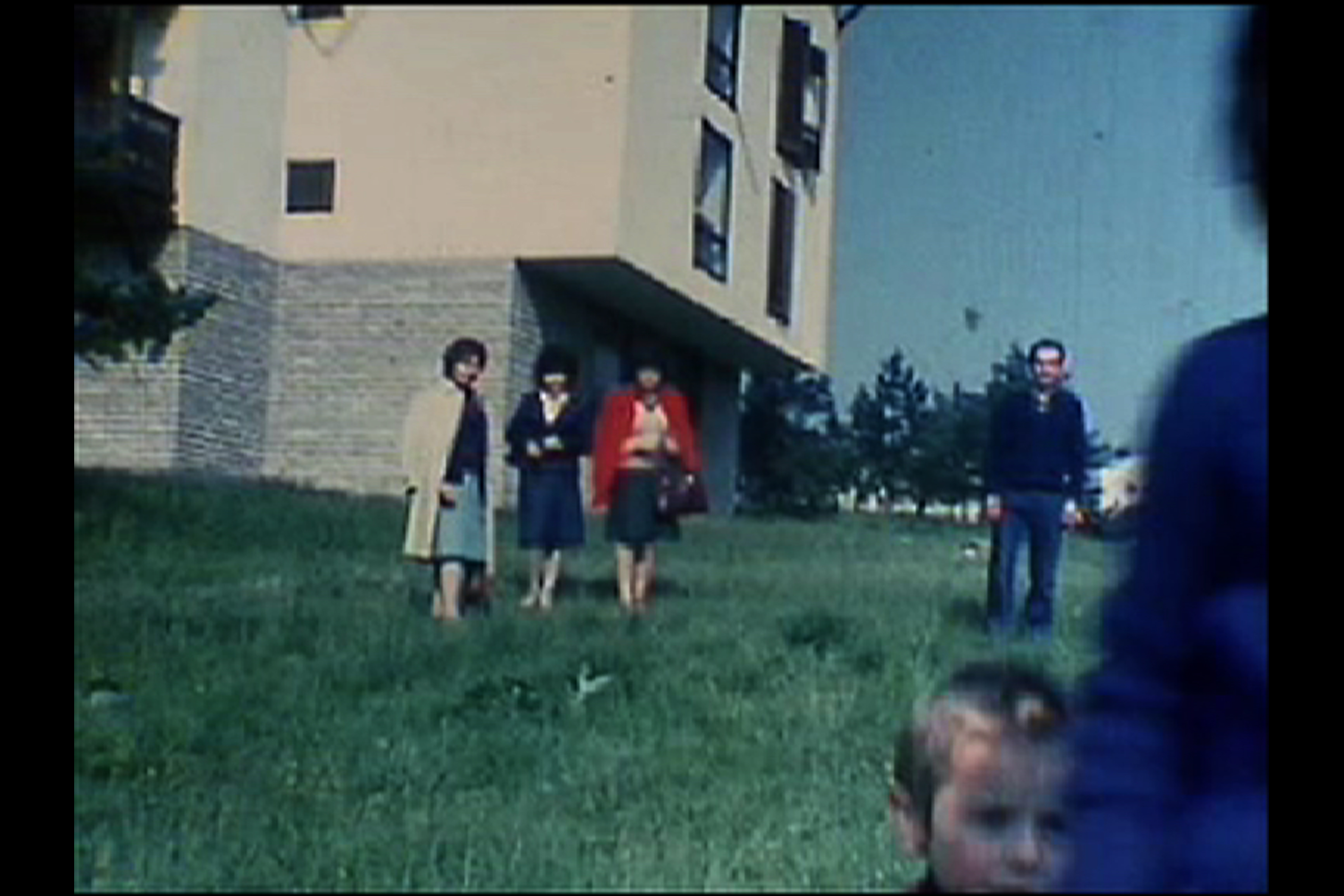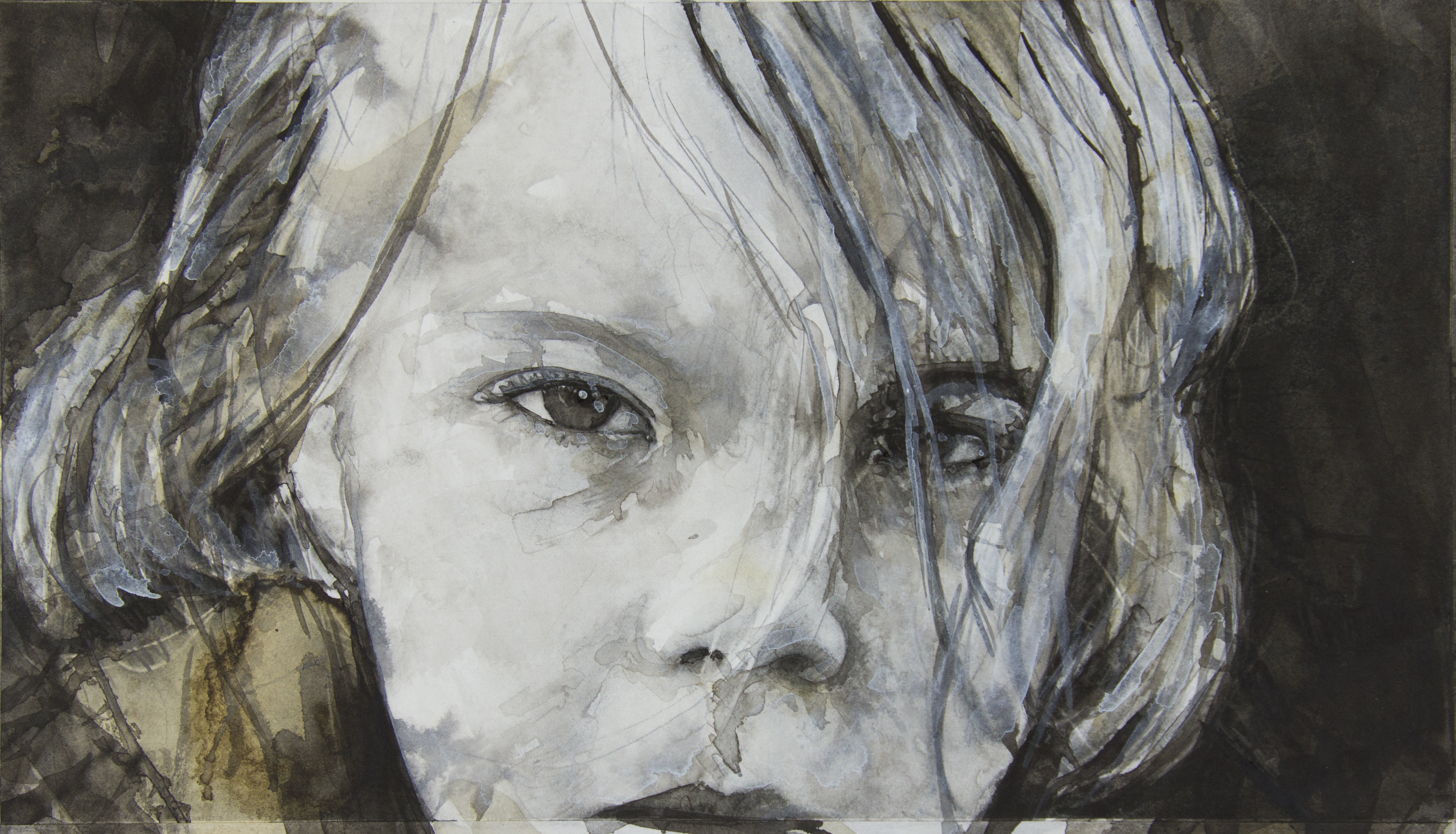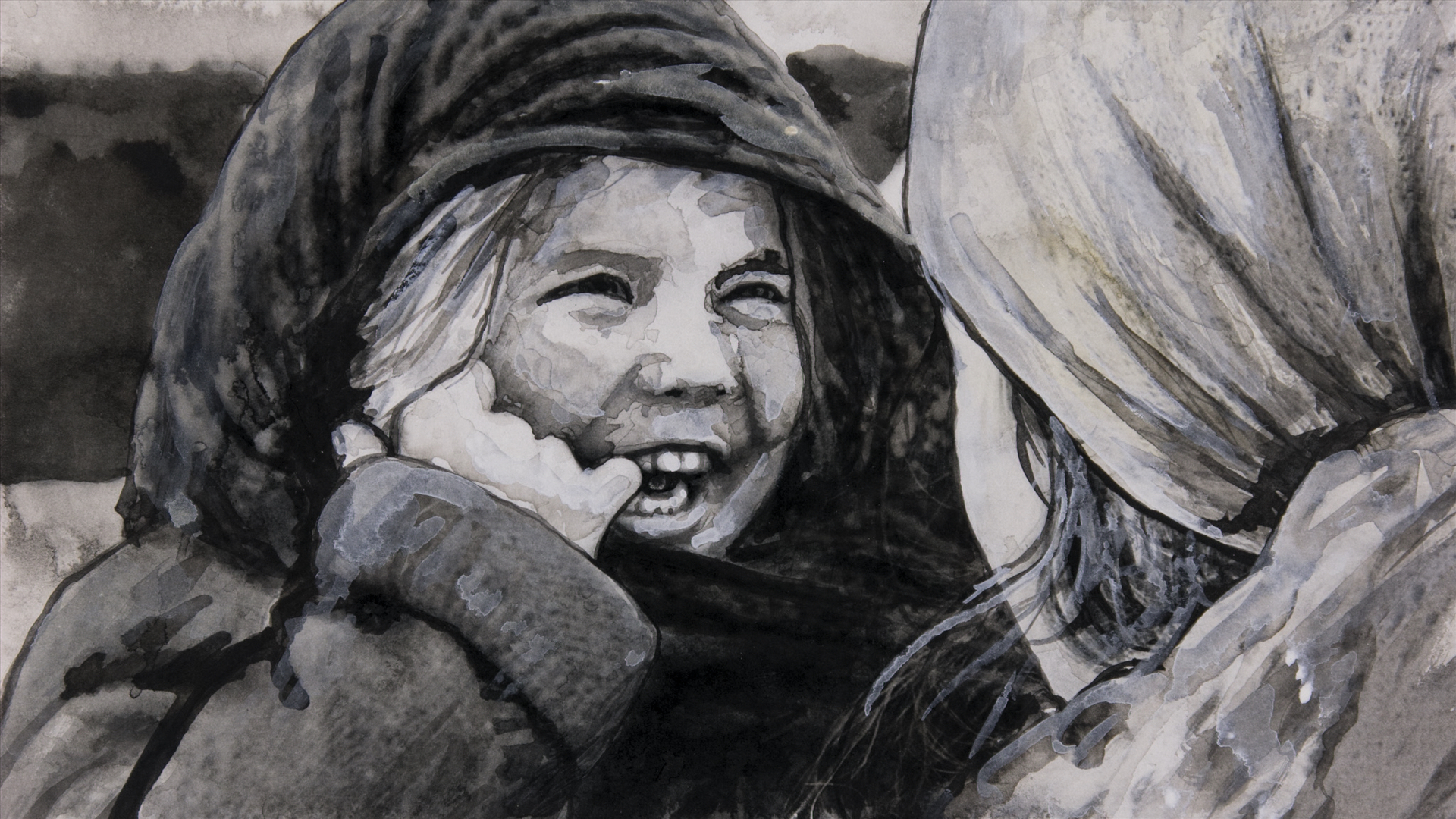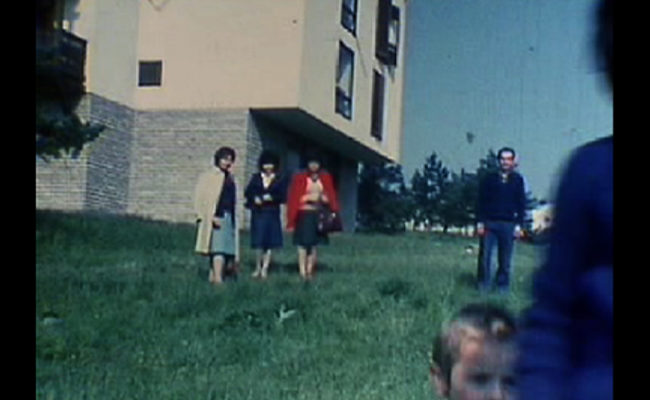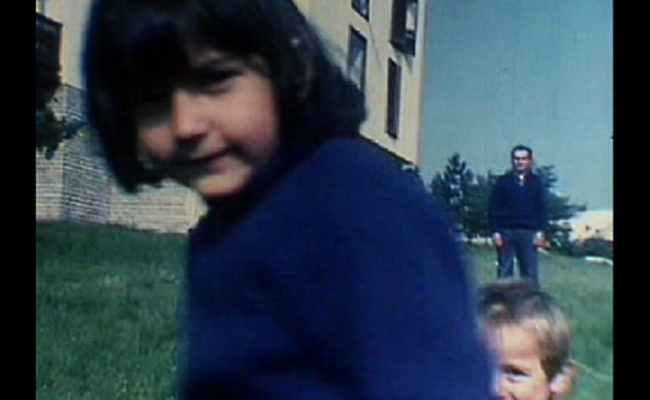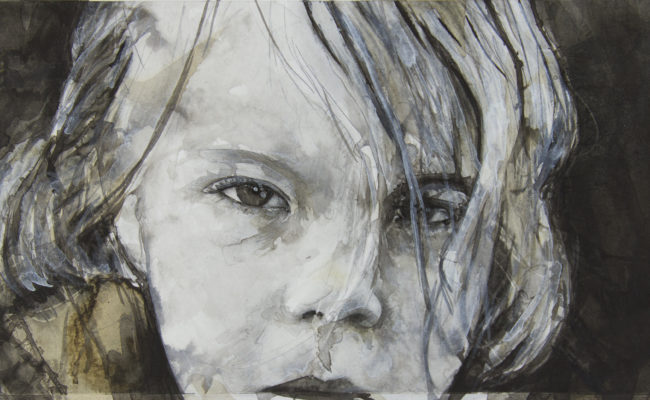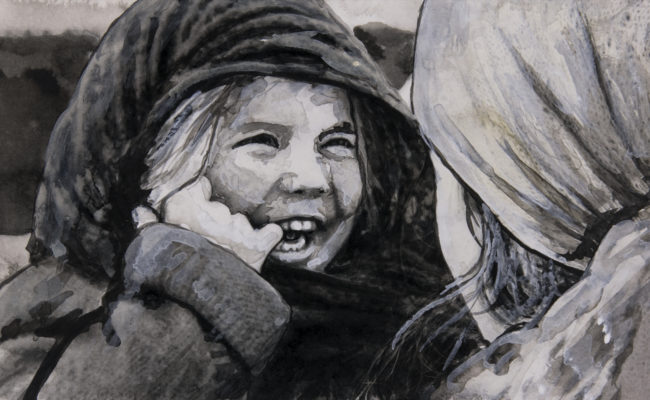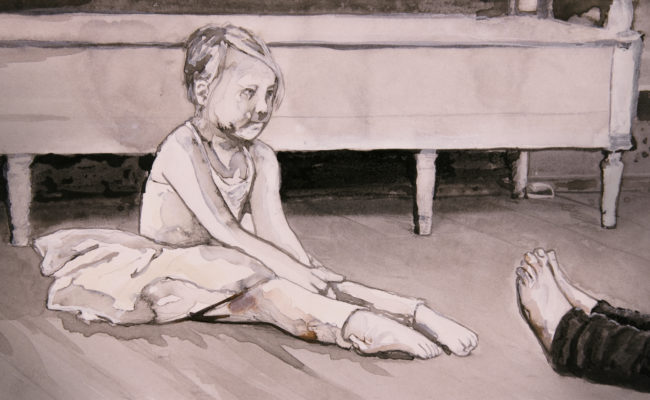'Children are political prisoners'
Jean Luc Godard
The group exhibition titled Another Day Another Life investigates ‘being a child’ as a choiceless existence within the framework of social, cultural and physical impacts. The exhibition which is curated by M. Kıvanç Gökmen and could be visited between January 9 and February 23, 2019, at Kasa Galeri, brings together the works by Dejan Kaludjerovic, Ferhat Özgür and Knutte Wester, who intermix the political, economic and social paradoxes of children and the notion of being a child.
In societies where people either don't have certain rights, or have lost or are losing them, the posterity is charged with the duties that need to be fulfilled for a bright future and are thought to be promising. As political doctrines have disappeared, it has become uncertain that how the posterity would answer the question ‘to divide up or to split up?’ in an environment where global turbulence unexceptionally affects all the layers of society. Is it possible to claim that a peaceful environment was inherited to the posterity in such societies where perceivable inertia and silence reign?
In a period and space where all the values contributing to economic and social equality, human rights and social togetherness are damaged, how much should one consider the values that society needs? How is it possible for children–who are dragged and left behind in the spatial sense as they want to go somewhere and take shelter in to remain hopeful about a future in a period and space where individuals strive to save today and struggle with the difficulties of daily life.
The children who are deprived of fundamental rights and freedoms, exiled and stuck between the walls, in the middle of never-ending wars, constructions, stationary social prejudices and discrimination… The kids who had to leave their homes, streets and memories because of economic, social and political collapse… The children growing up by understanding polarization and marginalization.
About the works
The exhibition titled Another Day Another Life aims to create a shared platform with the participation of three artists from three different countries who visualized these questions. Dejan Kaludjerovic's work titled 'The First of May, 1977’ comprising of a projected reversal film and a sound installation, tells a story about fragmentation, inertia and forgetting instead of union, actuality and remembering. Focusing on the violence between children who went to a picnic with their families in Yugoslavia on May the 1st, 1977, the work exposes the concepts of violence and fragmentation dominated the geography where the events happened, by means of a childhood experience.
Ferhat Özgür’s site-specific installation titled ‘Nowhere Land’, comprising of ready-made and waste materials, which focuses on the destruction of the historical and cultural memory, invites the spectators entering the space to the grey area between hope and depression mentioned above. The photo series printed on pieces of canvas fabric and cloth hanging from the top of the metal structural framework which stands like a monument in the middle of the space and several different materials surrounding it refers to the historical memory that is wiped out and lost.
The animation documentary titled ‘A Bastard Child’ by Knutte Wester comprising of the drawings, photographs and archival images inspired by the artist’s grandmother’s childhood story, exposes the years that a European child, born out of wedlock in Sweden, spent in an orphanage; the social prejudices she experienced and how her life was shaped by them. That Wester narrates the global definitions of the paradigms of illegitimacy and legitimacy from the perspective of a European, evokes multi-layered questions.
In this sense, the exhibition titled Another Day Another Life is an attempt to enable the art’s potential to heal, transform lives and make us think, feel and sense, by means of childish innocence.
We’d like to thank Cultural Office of Consulate General of Austria and Consulate General of Sweden for their contribution.




















